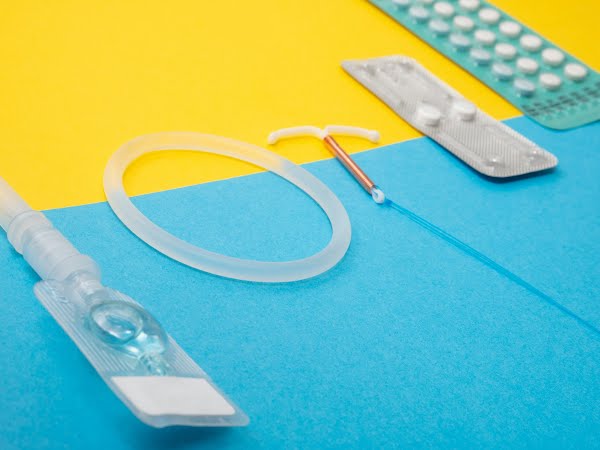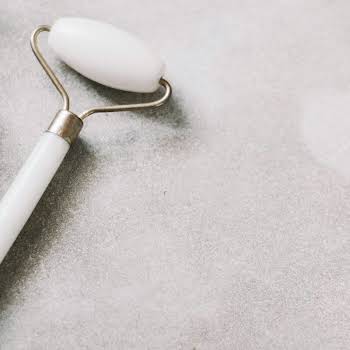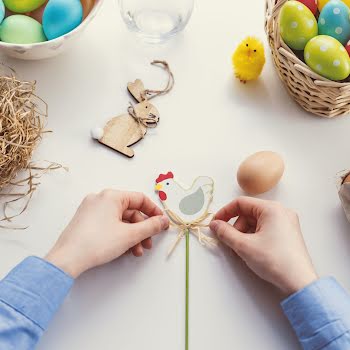
Sponsored
Your ultimate guide to birth control and how it affects women’s health
Sponsored By

By IMAGE
18th Jun 2024
18th Jun 2024
Sponsored By

With so much information out there, birth control can be a tricky subject to navigate. So, how do you find the best method for you? We ask pharmacist Oonagh O’Hagan, of Meaghers Pharmacy, to break it down in a FAQ guide.
“The types of birth control you use will affect how you use them,” explains Oonagh. “So, to help you find the best method for you, it’s important to know the different types, how they work and how long it takes for your fertility to return to normal afterwards.”
Here’s what you need to know…
What are the main types of birth control?
(1) Barrier methods – Condoms, diaphragms, or caps
These prevent a sperm from entering the womb and thus reaching an egg enabling fertilisation to take place. All devices – condoms are used over the penis, caps and diaphragms are inserted into the vagina – are used to prevent sperm from passing through the cervix into the female reproductive system. To become pregnant after using these barrier methods stop using whatever barrier device you have been using. These barrier methods of contraception do not affect the length of time it takes for you to become pregnant.
(2) The pill, vaginal ring or patch
The pill, vaginal ring and patch are all methods of contraception that raise the levels of two hormones, oestrogen and progesterone in your body. All three methods work by inhibiting your body from producing an egg each month from your ovaries. This prevents ovulation from occurring; the egg cannot meet a sperm cell and hence fertilisation cannot take place.
Once you have stopped using the pill, ring or patch, you will probably have a withdrawal bleed. This is like a period but is caused by hormones leaving your system. Some doctors prefer you to wait until after your first ‘natural’ period before trying to get pregnant. This makes it easier for them to know the date of your pregnancy. However, there is no reason why you cannot begin trying to conceive immediately after stopping the pill, ring or patch. Many women conceive shortly after stopping hormonal birth control. Occasionally, it can take several months before your body begins producing an egg each month (ovulating) after stopping these types of birth control.
The progesterone-only pill or “the mini-pill” is a tablet that raises your levels of progesterone in your body. Depending on the type of pill, it may stop you from ovulating or it may make it difficult for sperm to travel to the egg. Your fertility should return to normal within a very short time of stopping the mini-pill.

(3) The coil – IUD or IUS
The coil refers to either the copper coil (IUD) or the intrauterine system (IUS). The copper coil is an intrauterine device or IUD that prevents the implantation of any fertilised egg. The IUD does not contain any hormones and you continue to ovulate while it’s in place. There is no delay in returning to normal fertility once the IUD gets removed.
The other type of coil is an intrauterine system (IUS). An IUS is a small, T-shaped plastic device that’s put into your womb by a doctor or nurse. It contains a low dose of the hormone progesterone. Examples of this type of coil include the levonorgestrel intrauterine delivery systems (including Mirena, Kyleena and Jaydess). Once your IUS is removed, your fertility returns to normal very quickly.
(4) Contraceptive implant – The bar
This is a small tube that is inserted into the inner part of your upper arm and releases a low level of progesterone. This helps stop you from ovulating as well as making it difficult for sperm to meet the egg. Once this is removed, your natural fertility will return quickly, often within days.
(5) Contraceptive injection
This injection (medroxyprogesterone acetate or Depo Provera) is a large dose of progesterone given every three months. This injection stops you from ovulating, and its effects will last for at least 12 weeks after your last injection. After this, you may become pregnant quickly. But, as it is a relatively high dose of hormones, it can take longer for fertility to return to normal. In some cases, it can take up to a year.
(6) Tubal ligation or vasectomy
In both these instances, the female fallopian tubes are tied (tubal ligation) or the male tubes are tied (vasectomy) and it is not easy to reverse.
How does “the pill” and the hormones it contains impact our bodies?
Birth control pills are primarily used to avoid pregnancy. The most commonly prescribed pill is the combined oral contraceptive pill. It contains progesterone, the hormone that prevents pregnancy, and oestrogen which controls menstrual bleeding. The type of medicine and the dosage used estimate the effectiveness of these oral contraceptive medicines.
Because birth control pills contain progesterone and oestrogen, they’re able to help balance your hormones and regulate your menstrual cycle. Birth control pills can make your period more predictable, so you always know when it’s coming.

What are some common misconceptions about oral contraception?
- Myth #1: Birth control prevents STIs. (Only condoms can help prevent STIs.)
- Myth #2: You’ll gain weight on birth control.
- Myth #3: Older women don’t need birth control.
- Myth #4: Birth control pills will give you cancer.
- Myth #5: Taking birth control ruins your natural fertility.
- Myth #6: You need to take a 7-day break on the pill.
You can actually take your packets back to back. If you don’t have a 7-day break, you will not have a bleed. If you don’t want to have a period every month, you can safely continue to take your pill and have fewer bleeds. If you do this correctly, the pill remains as effective.
What are some of the most common side effects women experience, and how can we manage these?
Every woman is different and will experience a different response to these medications. Some common side effects of oral contraceptives include:
- Spotting between periods – breakthrough bleeding, or spotting, refers to when vaginal bleeding occurs between menstrual cycles.
- Nausea
- Breast tenderness
- Headaches and migraine
- Weight gain
- Mood changes
- Missed periods
- Decreased libido
Some people experience mild nausea when first taking the pill, but this usually subsides. Taking the pill with food or at bedtime may help. Birth control should not make people feel sick all the time. If the nausea is severe or lasts for a few months, it is best to talk to your pharmacist or GP to see what solutions are available.
Are there any long-term health implications associated with the prolonged use of hormonal birth control?
The main risks associated with the combined pill are an increase in your blood pressure, an increase in your risk of blood clots, and an increase in your risk of breast cancer and cervical cancer. It’s thought that 10 years after you stop the pill, your risk of these cancers will have returned to normal.
Can hormonal birth control affect mental health, and if so, what should women be aware of?
Past research has found hormonal contraceptive pills may increase women’s risk for chronically elevated inflammation, which carries the long-term risk of developing illnesses such as cancer, cardiovascular disease and autoimmune disorders, as well as potential mood disorders, including depression.
What should women discuss with their healthcare provider when considering a birth control method to ensure it aligns with their health needs and lifestyle?
This is a very personalised choice so women should discuss relationship factors, including marital status, number of sexual partners, how often you have sex and your partner preferences. Many women might discuss their religious beliefs as well as differences between birth control methods, including how effective they are at preventing pregnancy, side effects, cost and whether they prevent sexually transmitted infections.
To learn more about birth control, talk to your GP or pharmacist.
Delivering expert advice in a friendly and professional way, Meaghers Pharmacy have redefined the role of the pharmacist in the communities they serve and offer accessible and affordable healthcare solutions to patients in need of expert advice. Use the code IMAGE15 for 15% off all full-price products on their website.























